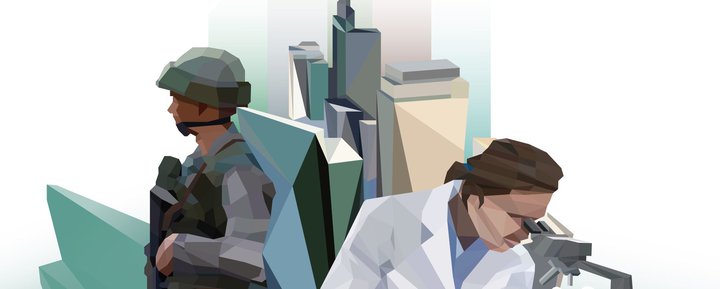
Never before have technological advances had so great an impact on security; not only increasing the nature and level of threats but also for the possibility of providing the means to address the threats.
Warfare will increasingly include cyber-weapons, unmanned remote-controlled warfare, chemical and bio-weapons, militarisation of space, precision strike capability.
While lethal autonomous weapons systems (LAWS) are introducing the third revolution in warfare, increasing precision targets and saving lives, they could also be misused and are highly dependent on the codes of ethics and algorithms that govern them.
Quantum cryptography is increasing communication security but adds new challenges to intelligence gathering.
Artificial intelligence could offer the possibility to timely identify people prone to produce harm (to themselves or others), creating opportunities to intervene long before thoughts turn to action.
AI, IoT, machine learning and other emerging information and processing technologies will improve military systems but also augment human capacity and boost weapons capabilities.
Digitalizing the energy system can help reduce CO2 emissions and costs in the energy sector, but increases the risks of cyber-attacks and other security issues of the energy system.
The world could face a large-scale bioweapon attack within “the next 10 to 15 years”.
Collection (and concentration) of biometric data would make possible hacking humans and other living organisms and is increasing the risks of digital warfare, targeted-attacks, and dictatorships (as well as re-engineering nature).
Hire Our Science Team!
If your company understands the value of a scientific research and advanced innovations, then you need to know more about the work we do!
